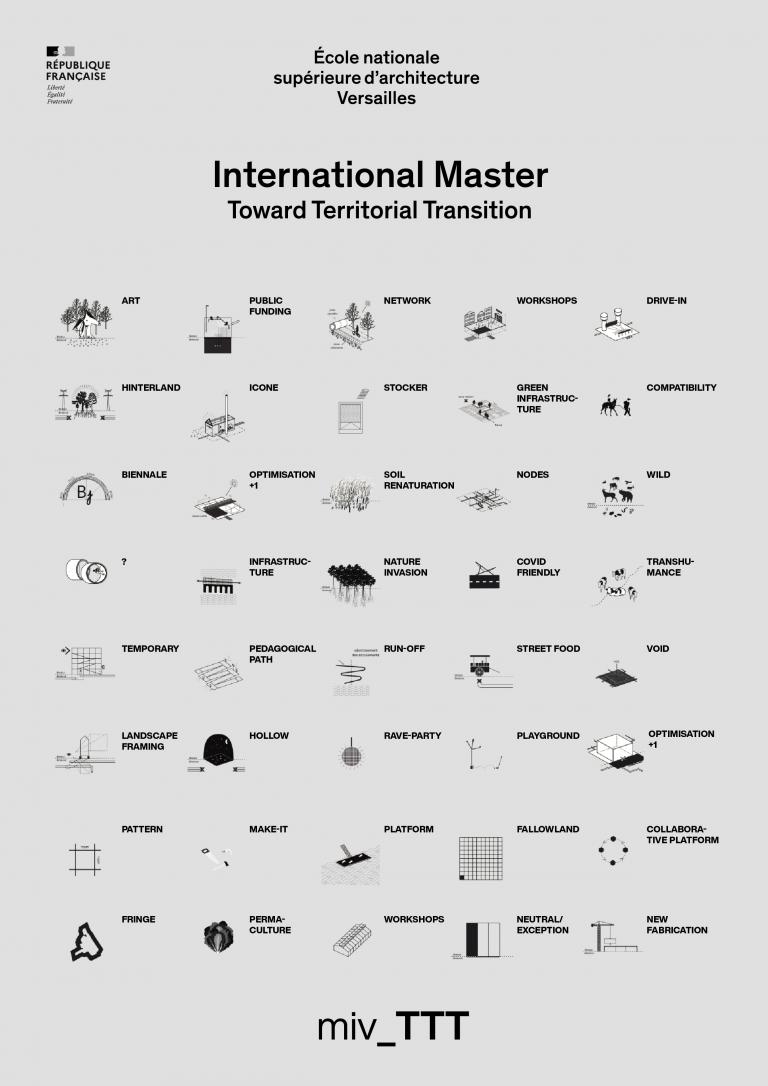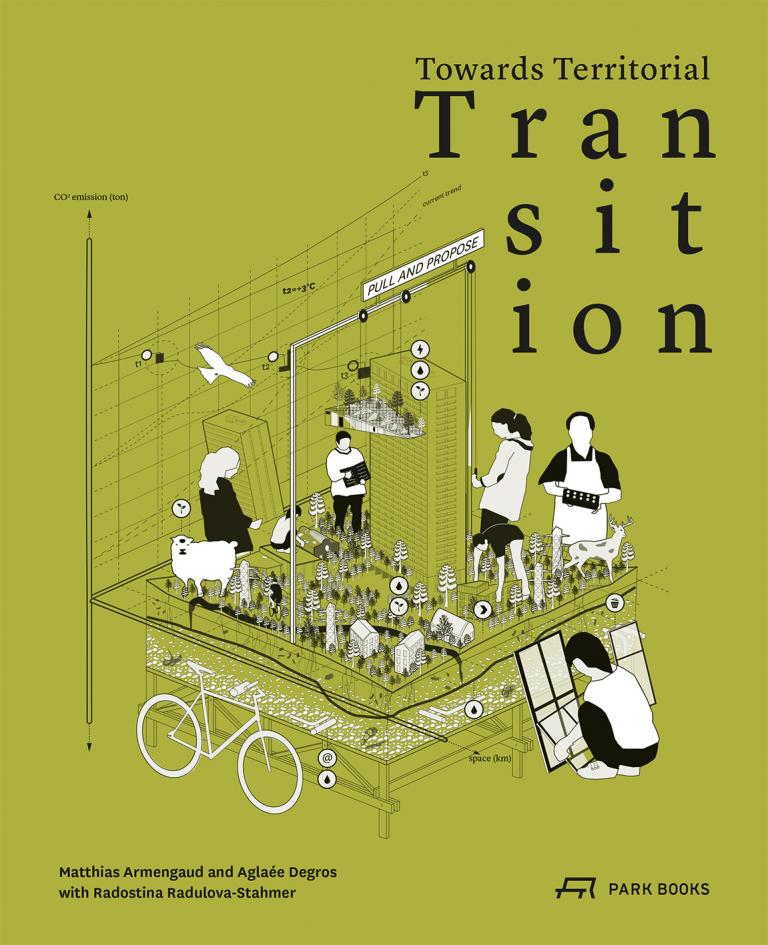International Masters Towards Territorial Transition
(miv-TTT)
The International Masters degree "Towards Territorial Transition" focuses on metropolitanisation and urban ecology, the two main research and design themes of our school". It is taught entirely in English and respects the disciplines and excellence of the ÉNSA Versailles and its partners. The programme welcomes students from diverse backgrounds and opens the door to further advanced studies and international practice. Matthias Armengaud and Ingrid Taillandier are the directors of this masters and Emilie Gascon is in charge of the coordination.

1/ French students involved in a French Chinese double master’s degree “Architect-Urbanist” with the prestigious CAUP-Tongji University in Shanghai entitled “Ecological Urbanism”.
2/ French students interested in diverse Erasmus or international programme exchange opportunities. Please note that students involved in the miv-TTT have reserved exchanges with our partners and have the priority on ÉNSA Versailles’ exchanges compared to common cursus students.
3/ Chinese students involved in the French Chinese double masters degree.
4/ International students welcomed at ÉNSA Versailles for one semester or one year.
For French students involved in the miv-TTT, after a selection based on Bachelor results, as well as motivation and proficiency in English, the curriculum lasts 2 1/2 years : the first year at the ÉNSA Versailles, the second year abroad (one full year or one semester depending on the cases), and then back to Versailles for the completion of a final diploma with a research specialisation mention (PFE mention recherche). Students are helped to find an international and/or research internship of at least 3 months. As a result, students obtain: a French Architecture diploma with certified research and international specialisations , and for those involved in the specific miv-TTT option a double masters “Architect-Urbanist” with the CAUP-Tongji.
Please note that the development of other double masters’ degrees such as “Architect-Urbanist” and “Architect-Landscape architect” are in progress with our partners and other new partnerships are being explored.
The International Master’s program provides students tools and methods to answer significant and urgent contemporary questions such as:
- How to explore new ideas about city design, management, and planning in order to have more radical thinking in the face of the environmental and climatic crisis?
- How to meet the colossal demographic and ecological challenges?
- How to question the idea of utopia and avoid dystopia?
- How to analyse territories and the systemic interrelations between nature, water, food, energy, pollution, and economy going beyond the questions of risks and resources?
- How to acquire a theoretical and practical urban culture, as well as tackle the operational dimension of urban planning?
Reflection on these topics will enable students to learn how to interrogate a spatial context at different scales, from territories to architecture, back and forth, to root cause an issue through an interdisciplinary approach, and at the same time to evaluate hypotheses for solution strategies. In addition, students will learn how to analyse data and numerous case studies of design material critically, how to spatialize complex systems , and at the same time, design their temporal and sensitive dynamics. Finally, the interweaving of theory and practical application will enable students to create a personal connection and relationship between disciplines and work on various modes of representation to design and communicate their ideas.
More than a traditional educational program, students in the miv-TTT regularly participate in international workshops, exhibitions, research, and publications. This allows them to join a unique cultural environment and show their work and reflections to a broad audience. Beyond the traditional teaching relationship, students benefit from the assistance of a dedicated tutor that helps them in making training and career path decisions. In addition to this formal guidance, the school alumni network will ensure and generate solid support for graduates during their studies and future working environments. In addition to traditional exchanges, students are offered opportunities to work in international environments during their masters and to continue in those after graduation. The programme will enable students to participate in unique partnerships with foreign universities and architecture, urbanism, and landscape agencies around the globe. In addition, the ÉNSA Versailles cross-national environment, which hosts scholars and teachers from all over the world, opens the door to a rich portfolio of exchanges. Lastly, the educational and network offer will increase over the following years, offering students a broad spectrum of possibilities.
